The following press release regarding the upcoming Georgia Family History Expo is courtesy Family History Expos:
Your Family History Starts in Duluth, GA
Georgia Family History Expo Nov. 9-10
Alabama genealogy professional and author Robert S. Davis, M.Ed, MA will reveal the “Secrets to Research in Georgia” at the Georgia Family History Expo Nov. 9-10 at the Gwinnett Center in Duluth, Ga.
Davis is director of the Genealogy Program of Wallace State Community College, Hanceville, Ala. The historian has more than 1,000 publications on records and research to his credit. He will kick off the Expo at 2 p.m. Friday in the Gwinnett Center Ballroom.
“We’re so lucky to have such an experienced historian address us at this Expo,” Family History ExposFounder and President Holly T. Hansen said. “We’ve got a spectacular lineup at this event and I couldn’t be happier.”
On Friday, 6:30 p.m., Davis will lecture on, “The Secrets to Research in Alabama.” At 7:50 p.m. he will present a course titled, “Crossing the Great Divide: Little Known Federal Sources for Place of Birth before 1850.”
Davis will return on Saturday to teach Expo participants about “Research in the War of 1812 in the Deep South.” At 11:20 a.m. he will discuss “The Thirteenth Colony: Exploring the Colonial Georgia Records.”
Featured speaker Paul Adjei, CEO at Worldbiz Business, lives in Kumasi-Ghana. He collects and preserves oral genealogical data and is currently preserving the history of one of the most powerful tribes in West Africa called the Akan. He manages 20 field staff members performing research on this tribe. Adjei will address the topic of African roots at 6:30 p.m. Friday for all levels of family historians. The course description of “Africa the Root of Our Ancestors” notes, “As you begin your journey back to the root of your ancestors you will find oral history is one of the key resources on both sides of the ocean.”
On Saturday at 10 a.m. Adjei will offer a lecture titled “Echoes from Africa.” This course will help participants discover the kinds of roots available to assist researchers of African Roots.
At 2:30 p.m. on Saturday Adjei will team up with Bernard E. Gracy, Jr. for a panel discussion titled, “Unlock Your Ancestry with DNA and Oral History.” The discussion will focus on DNA research and oral history highlighting new strategies to discovering ancestral roots.
Gracy is the external chief technology officer and vice president of business development at Pitney Bowes. He has a master’s degree in computer science and a master’s in e-commerce. In addition to his work as a Fortune 500 executive, he is an accomplished genealogist.
Expo participants will also be treated to lectures from a wide variety of other professional genealogists and family historians including (but certainly not limited to) the following:
“Where Do I Start?” by Billy Dubois Edgington for beginning family historians
“Georgia Land, Maps and Technology,” by Jennifer Dondero
“Reading Old Style Handwriting,” by Sharon D. Monson
“German Church and Civil Records,” by Fritz Juengling, Ph.D.
“Using the Neighbors to Find Your Ancestors,” by Monica L. Hopkins
Hansen will share her personal research magic during a closing keynote address in the ballroom on Saturday at 3:50 p.m. She will also draw for door prizes offered by sponsors and supporters of the event.
“At a time when the Georgia Governor has decided to close state archives to the public, it is more important than ever before that we come together in numbers and talk about the importance of the preservation of records and public access to them,” Hansen said.
The cost to attend this two-day event is just $89 with pre-registration and $110 at the door. Pay only $60 for one day. Onsite registration will begin and the exhibit hall will open at 1 p.m. on Friday. The event will close at 9 p.m. Exhibits and registration will re-open at 9 a.m. on Saturday. The exhibit hall will close at 4 p.m. Prizes donated by exhibitors will be given away both days and Grand Prizes donated by sponsors will be given away at the closing ceremony. This event is sponsored by Family History Expos and supported by FamilySearch.
Register now at www.FamilyHistoryExpos.com or call 801-829-3295 for telephone registration.





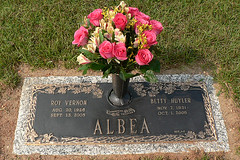
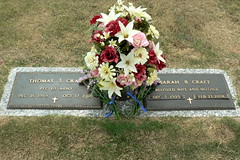
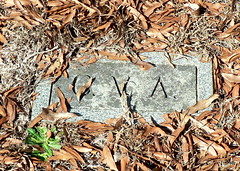
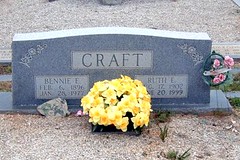
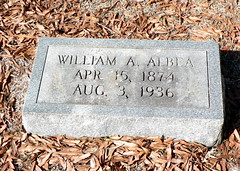
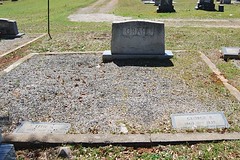
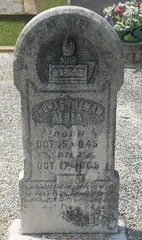


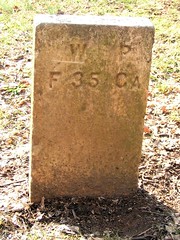

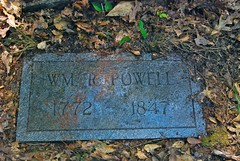

 The Civil War had a major impact on the lives of the people who lived through it. One way to see this impact is through tax records. I recently found tax records at the Georgia Archives from just before and shortly after the Civil War for Tilman Albea, my 4x Great-Grandfather.
The Civil War had a major impact on the lives of the people who lived through it. One way to see this impact is through tax records. I recently found tax records at the Georgia Archives from just before and shortly after the Civil War for Tilman Albea, my 4x Great-Grandfather.








